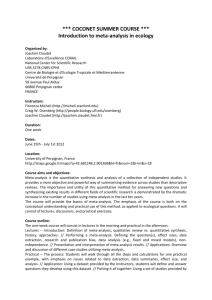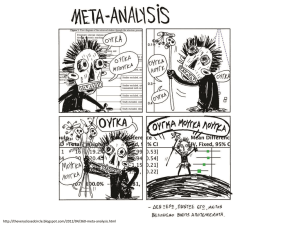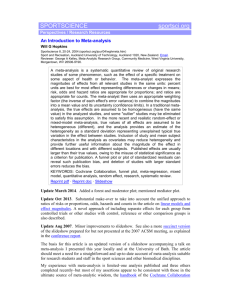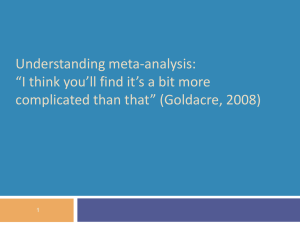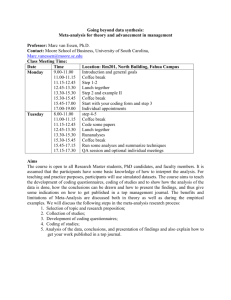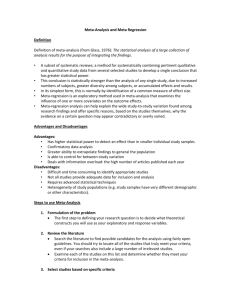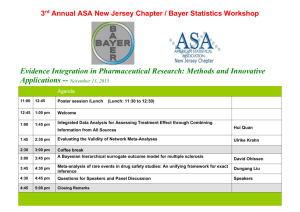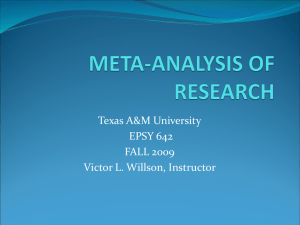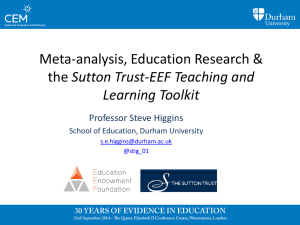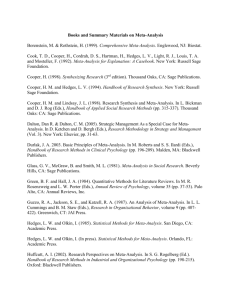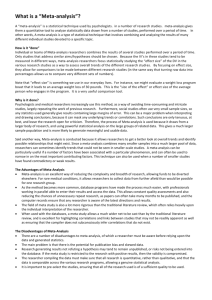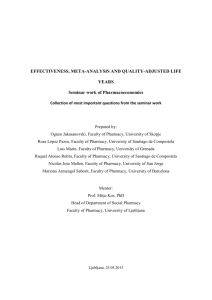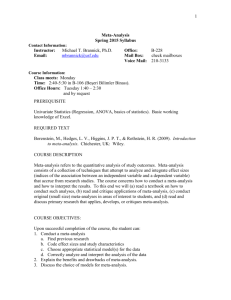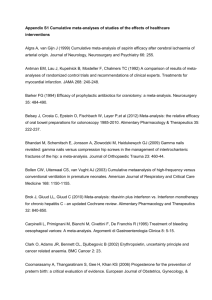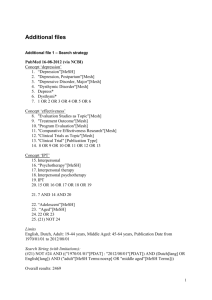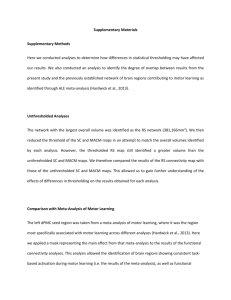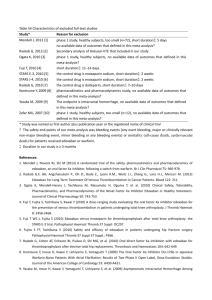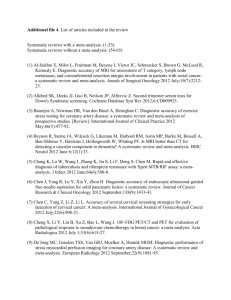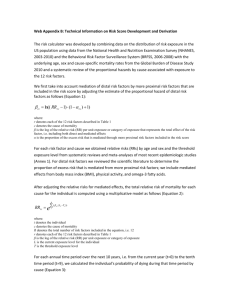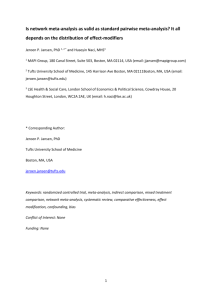FS16_Introduction to meta
advertisement
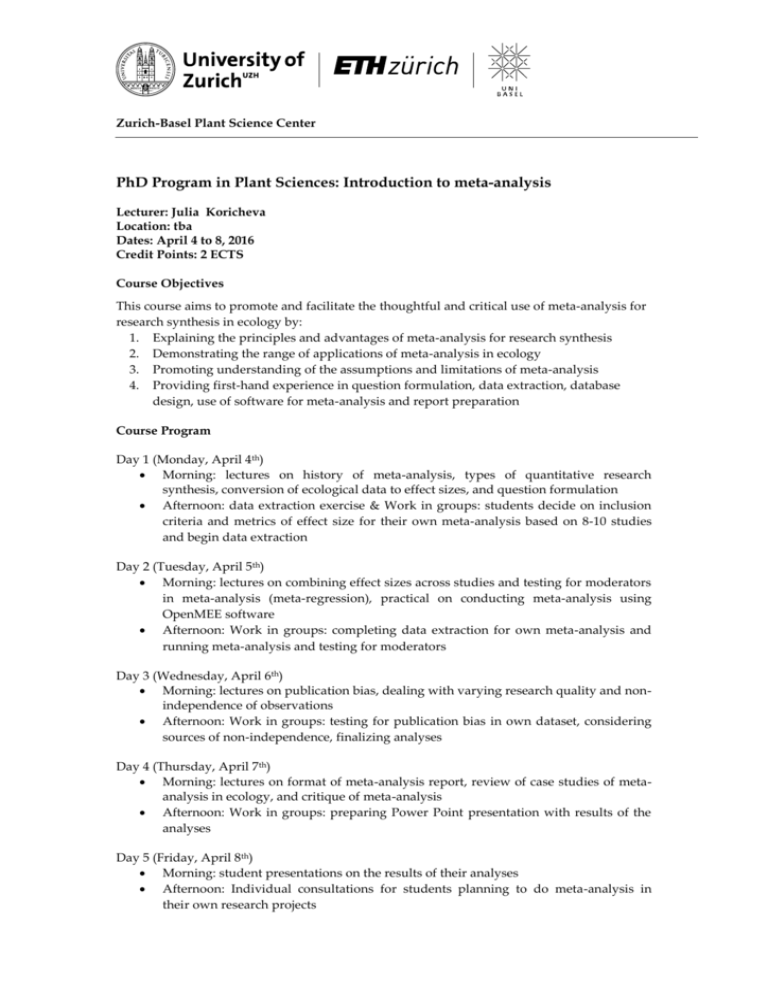
Zurich-Basel Plant Science Center PhD Program in Plant Sciences: Introduction to meta-analysis Lecturer: Julia Koricheva Location: tba Dates: April 4 to 8, 2016 Credit Points: 2 ECTS Course Objectives This course aims to promote and facilitate the thoughtful and critical use of meta-analysis for research synthesis in ecology by: 1. Explaining the principles and advantages of meta-analysis for research synthesis 2. Demonstrating the range of applications of meta-analysis in ecology 3. Promoting understanding of the assumptions and limitations of meta-analysis 4. Providing first-hand experience in question formulation, data extraction, database design, use of software for meta-analysis and report preparation Course Program Day 1 (Monday, April 4th) Morning: lectures on history of meta-analysis, types of quantitative research synthesis, conversion of ecological data to effect sizes, and question formulation Afternoon: data extraction exercise & Work in groups: students decide on inclusion criteria and metrics of effect size for their own meta-analysis based on 8-10 studies and begin data extraction Day 2 (Tuesday, April 5th) Morning: lectures on combining effect sizes across studies and testing for moderators in meta-analysis (meta-regression), practical on conducting meta-analysis using OpenMEE software Afternoon: Work in groups: completing data extraction for own meta-analysis and running meta-analysis and testing for moderators Day 3 (Wednesday, April 6th) Morning: lectures on publication bias, dealing with varying research quality and nonindependence of observations Afternoon: Work in groups: testing for publication bias in own dataset, considering sources of non-independence, finalizing analyses Day 4 (Thursday, April 7th) Morning: lectures on format of meta-analysis report, review of case studies of metaanalysis in ecology, and critique of meta-analysis Afternoon: Work in groups: preparing Power Point presentation with results of the analyses Day 5 (Friday, April 8th) Morning: student presentations on the results of their analyses Afternoon: Individual consultations for students planning to do meta-analysis in their own research projects Prior Knowledge: No previous experience with programming languages is required. General understanding of standard statistics (mean, standard deviation, analysis of variance, correlation, regression) is required. Number of Participants: 25 Individual Performance and Assessment: Throughout the course students will work in small groups (3-4). Each group will be given a topic for the analysis and a collection of 8-10 research papers on the topic. The students will have to: Formulate questions for the analysis, particularly with respect to the potential sources of variation in the effect Formulate inclusion criteria for the studies Decide on the metric of effect size to be used Design the data file and extract data from the research papers Conduct meta-analysis of the data extracted using MetaWin software Prepare a Power Point presentation on the results of their analysis
